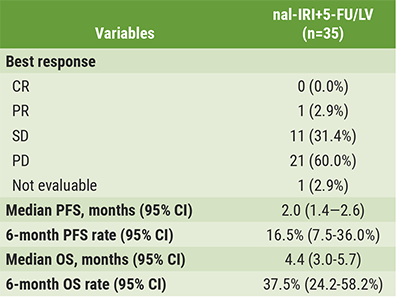 Medicom Medical Publishers interviewed Ms Ali Stunt about her journey from a pancreatic cancer diagnosis to becoming a leading advocate and founder of Pancreatic Cancer Action. In this exclusive interview, Ms Stunt not only shared her journey but also illuminated the critical work being done by Pancreatic Cancer Action. Her passion, resilience, and commitment to the cause serve as an inspiration for everyone touched by pancreatic cancer, reinforcing the importance of advocacy, awareness, and community support in the ongoing fight against this formidable disease.
Medicom Medical Publishers interviewed Ms Ali Stunt about her journey from a pancreatic cancer diagnosis to becoming a leading advocate and founder of Pancreatic Cancer Action. In this exclusive interview, Ms Stunt not only shared her journey but also illuminated the critical work being done by Pancreatic Cancer Action. Her passion, resilience, and commitment to the cause serve as an inspiration for everyone touched by pancreatic cancer, reinforcing the importance of advocacy, awareness, and community support in the ongoing fight against this formidable disease.Can you share a bit about your personal journey with pancreatic cancer and what inspired you to become an advocate for the cause?
“My journey with pancreatic cancer began in 2007 when I received a diagnosis that shook my world. At that time, the lack of awareness and limited treatment options for this disease were starkly apparent. Instead of letting despair take over, I felt a strong calling to turn my experience into a force for change. The inspiration to become an advocate came from the realisation that pancreatic cancer needed a louder voice, and I was determined to be part of that movement.”
Could you tell us about the founding of Pancreatic Cancer Action and its mission?
“Pancreatic Cancer Action was founded in 2010 with a clear mission: to change the future for everyone affected by pancreatic cancer. The organisation operates on three key pillars – awareness, early detection, and patient support. We aim to dispel myths surrounding the disease, advocate for increased research and funding, and provide crucial support networks for patients and their families.”
What, in your opinion, are the most significant challenges in the fight against pancreatic cancer, and how is your organization addressing them?
“One of the major challenges is the late-stage diagnosis that is all too common in pancreatic cancer cases. We are working tirelessly to promote awareness about potential symptoms and the importance of early detection. Another challenge is the limited treatment options available. Through advocacy efforts, we aim to influence policies and increase research funding to develop more effective treatments.”
Could you share some highlights of Pancreatic Cancer Action's global impact and awareness campaigns?
“Our awareness campaigns have been pivotal in reaching a global audience. From social media initiatives to collaborations with healthcare institutions, we strive to break the silence surrounding pancreatic cancer. Our impact is measured not only by the increased awareness but also by the growing support networks we've built for patients and their families.”
How do you envision the future of pancreatic cancer treatment and research, and what role does Pancreatic Cancer Action play in shaping that future?
“The future of pancreatic cancer treatment holds promise with advancements in research and technology. Pancreatic Cancer Action is actively involved in advocacy to ensure that early detection methods become a reality. We collaborate with researchers, healthcare professionals, and policymakers to shape a future where more lives can be saved through timely interventions.”
As a survivor and advocate, what message would you like to convey to individuals and families affected by pancreatic cancer?
“My message is one of hope and empowerment. To individuals and families facing pancreatic cancer, know that you are not alone. Pancreatic Cancer Action is here to provide support, resources, and a community that understands your journey. Together, we can make a difference and bring about positive change in the fight against pancreatic cancer.”
What future initiatives does Pancreatic Cancer Action have in the pipeline, and how can individuals contribute to the cause?
“We have ongoing initiatives that focus on early detection research and patient support. Individuals can contribute by getting involved in fundraising activities, spreading awareness through social media, or even volunteering their time. Every small effort counts in the larger mission of changing the future for pancreatic cancer.”
Posted on
Previous Article
« ESMO 2023 Highlights Podcast Next Article
Comorbidity in adult psoriasis »
« ESMO 2023 Highlights Podcast Next Article
Comorbidity in adult psoriasis »
Related Articles

October 23, 2019
Global burden of digestive diseases reveals alarming trends
© 2024 Medicom Medical Publishers. All rights reserved. Terms and Conditions | Privacy Policy
HEAD OFFICE
Laarderhoogtweg 25
1101 EB Amsterdam
The Netherlands
T: +31 85 4012 560
E: publishers@medicom-publishers.com

